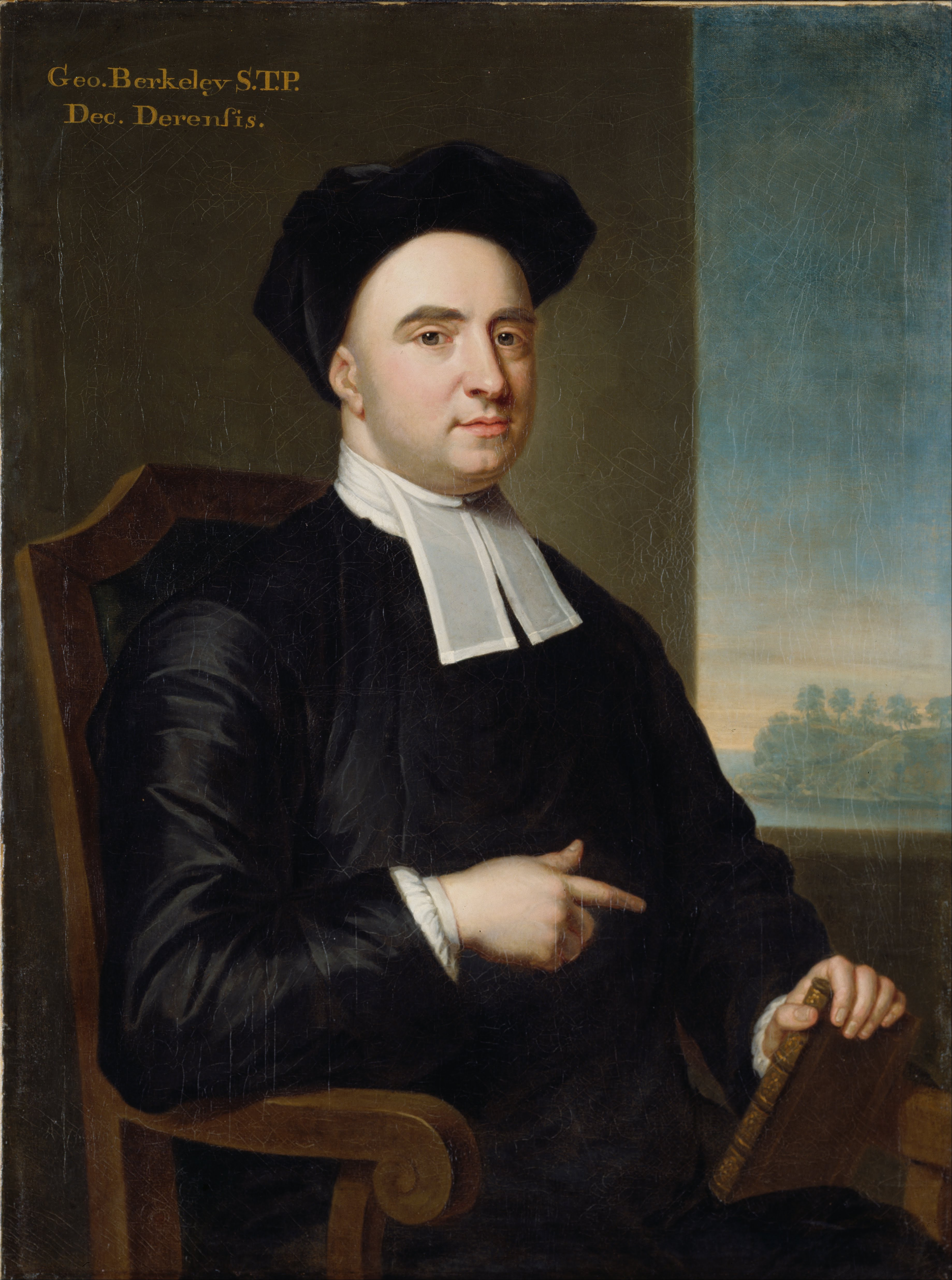What is mind? No matter. What is matter? Never mind.

"George Berkeley", also known as "Bishop Berkeley" (Bishop of Cloyne), was an Anglo-Irish people/Anglo-Irish philosopher whose primary achievement was the advancement of a theory he called "immaterialism" (later referred to as "subjective idealism" by others). This theory denies the existence of matter/material substance and instead contends that familiar objects like tables and chairs are only ideas in the minds of perception/perceivers, and as a result cannot exist without being perceived. Berkeley is also known for his critique of abstraction, an important premise in his argument for immaterialism.
In 1709, Berkeley published his first major work, s:An Essay Towards a New Theory of Vision/An Essay towards a New Theory of Vision, in which he discussed the limitations of human vision and advanced the theory that the proper objects of sight are not material objects, but light and colour. This foreshadowed his chief philosophical work A Treatise Concerning the Principles of Human Knowledge in 1710 which, after its poor reception, he rewrote in dialogue form and published under the title Three Dialogues between Hylas and Philonous in 1713.
Repr. in In this collection of essays, Turbayne's work comprised two papers that had been published in Philosophy and Phenomenological Research:
If you enjoy these quotes, be sure to check out other famous philosophers! More George Berkeley on Wikipedia.Westward the course of empire takes its way; / The four first acts already past, / A fifth shall close the drama with the day: / Time's noblest offspring is the last.
All the choir of heaven and furniture of earth - in a word, all those bodies which compose the frame of the world - have not any subsistence without a mind.
Whenever I attempt to frame a simple idea of time, abstracted from the succession of ideas in my mind, which flows uniformly, and is participated by all beings, I am lost and embrangled in inextricable difficulties.
From my own being, and from the dependency I find in myself and my ideas, I do, by an act of reason, necessarily infer the existence of a God, and of all created things in the mind of God.
Copyright © 2024 Electric Goat Media. All Rights Reserved.